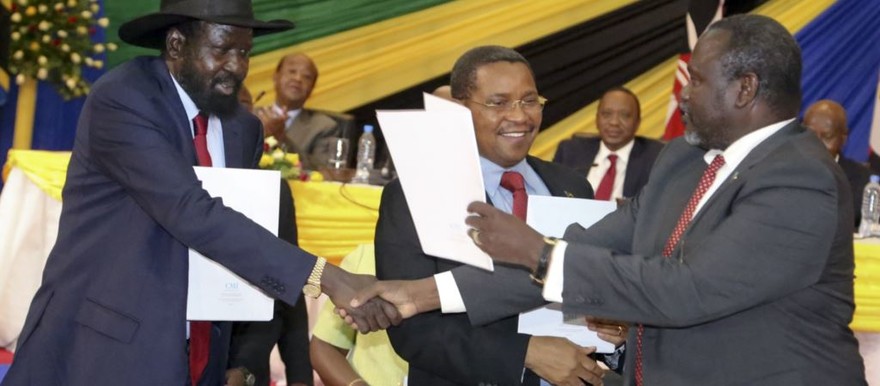A group of civil society organizations in South Sudan have cautioned against “too much flexibility” in the implementation of the peace agreement signed last August and called for reinforced efforts for peace.
“We strongly emphasize the need for the parties to remain true to [their] commitment and speed up the implementation of the Peace Agreement in its letter and spirit and avoid too much flexibility and alterations to the contents of the Agreement so that its desired meaning and timelines are adhered to,” said the group in statement yesterday.
President Salva Kiir signed the peace deal last August with twelve pages of reservations and has since sought to change the number of states in the agreement and to appoint his loyalists as governors in areas where the peace agreement gives governorships to the rebel group SPLM-IO.
The monitoring body tasked with overseeing the agreement, JMEC, has called the creation of new states a “violation” of the peace deal but called on the government and rebels to negotiate a compromise on this point after the formation of a transitional government at the national level.
In their statement, the civil society groups did not refer specifically to the issue of 28 states. They said: “Noting that delays in the implementation of the Agreement is detrimental to the stability of our country, the civil society community calls upon all South Sudanese political forces to separate partisan interests from legal aspects of the agreement and matters pertaining the constitution of the country.”
The statement was signed by South Sudanese Network for Democracy and Elections (SsuNDE), South Sudan Democratic Engagement, Monitoring and Observation Programme (SsuDEMOP), Community Empowerment for Progress Organization (CEPO), Organization for Nonviolence and Development (ONAD), Institute for Promotion of Civil Society (IPCS), Voice for Change (VFC), Peace and Development Collaborative Organization (PDCO), and Dialogue Research Initiative (DRI).




